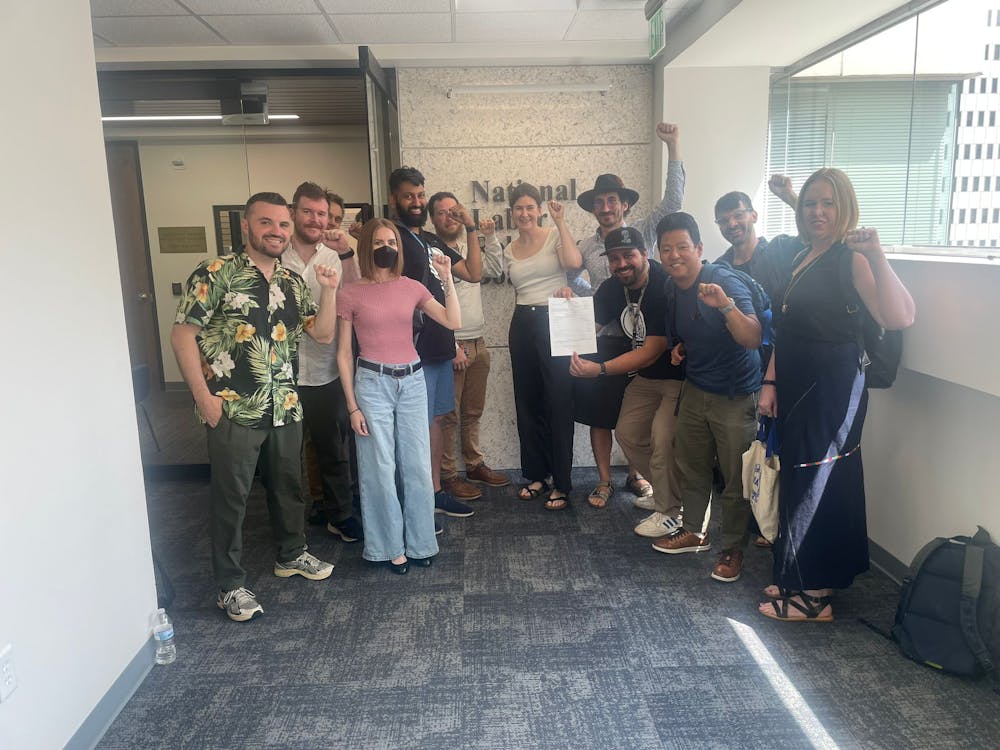Chemistry Nobel Laureate Dr. Peter Agre spoke about his experiences meeting with the recently deceased Cuban dictator Fidel Castro on Wednesday at the Johns Hopkins Club. Agre also invited Luis Alberto Montero-Cabrera, a professor at the University of Havana, to speak about his experiences as a teacher in Cuba.
Agre began the lecture with an introduction of how he became involved in diplomacy with Cuba.
“I was elected president of the American Association for the Advancement of Science in 2009, and a new program in science diplomacy was started [in which] American scientists [visited] countries around the world where governments were not so friendly, but the scientists had much in common,” Agre said. “We made a series of trips to North Korea, Iran and Cuba, Cuba most of all.”
Agre also spoke about the way Havana was run at the time he visited.
“Havana, before the revolution, was a favorite destination for American tourists. It was run by organized crime,” he said. “In addition, there were drugs and prostitution and all the evils. This was an enormously profitable business and basically bankrolled the Batista regime at the expense of the Cuban people.”
Agre then spoke about his meeting with Castro and his legacy specifically in the field of technology and innovation.
“The spirit of [Fidel Castro] is really alive. After the revolution ended, Fidel Castro led a massive investment of resources into Cuban biotechnology,” he said. “He built a series of institutes, developing and producing new medications [and also] led the development of medical doctors.”
Agre reflected on the emphasis Castro put on developing science in Cuba.
“Science brings people together from around the world. The Cuban Academy of Science has been in existence for now about 150 years. In one of his very first speeches after the revolution, Castro said, ‘the future of Cuba is the people of science.’ Cuba was going to diverse itself from being an agricultural economy to a medical, technical economy.”
During Agre’s meeting with Castro, Castro also touched on his generally unfavorable impressions of the United States presidents, as well as his perception on the Bay of Pigs invasion and the Cuban Missile Crisis.
Castro believed that if John F. Kennedy had not won the 1960 presidential election, the Republican Party, which was stronger at the time, would have initiated an invasion on Cuba.
“There was not any evidence of remorse or apology, I think he was pretty convinced that he did things the right way,” Agre said. “[During the Cuban missile crisis], they did not want missiles in Cuba, but they were 100 percent dependent on aid from the Soviet Union. When [Castro] was told that missiles would be placed in Cuba, it was not something the Cubans were advocating for, but they had no bargaining power.”
Montero-Cabrera spoke about his personal teaching experiences in Cuba, emphasizing the differences between teaching there and teaching in the United States.
“What is really different is the worth of the environment,” Montero-Cabrera said. “We must go with our teaching capacities in conditions where our sources for teaching are limited. I was teaching in a community where no one knew [how to] read and write.”
Montero-Cabrera, however, credited Castro as a key figure in helping the economy and taking a more modern approach towards healthcare in Cuba.
Cuba is now close in figures to the United States in life expectancy and mortality.
“This means that the number of lives present in my students in the university are there because these public health figures are magnificent,” Montero-Cabrera said.




